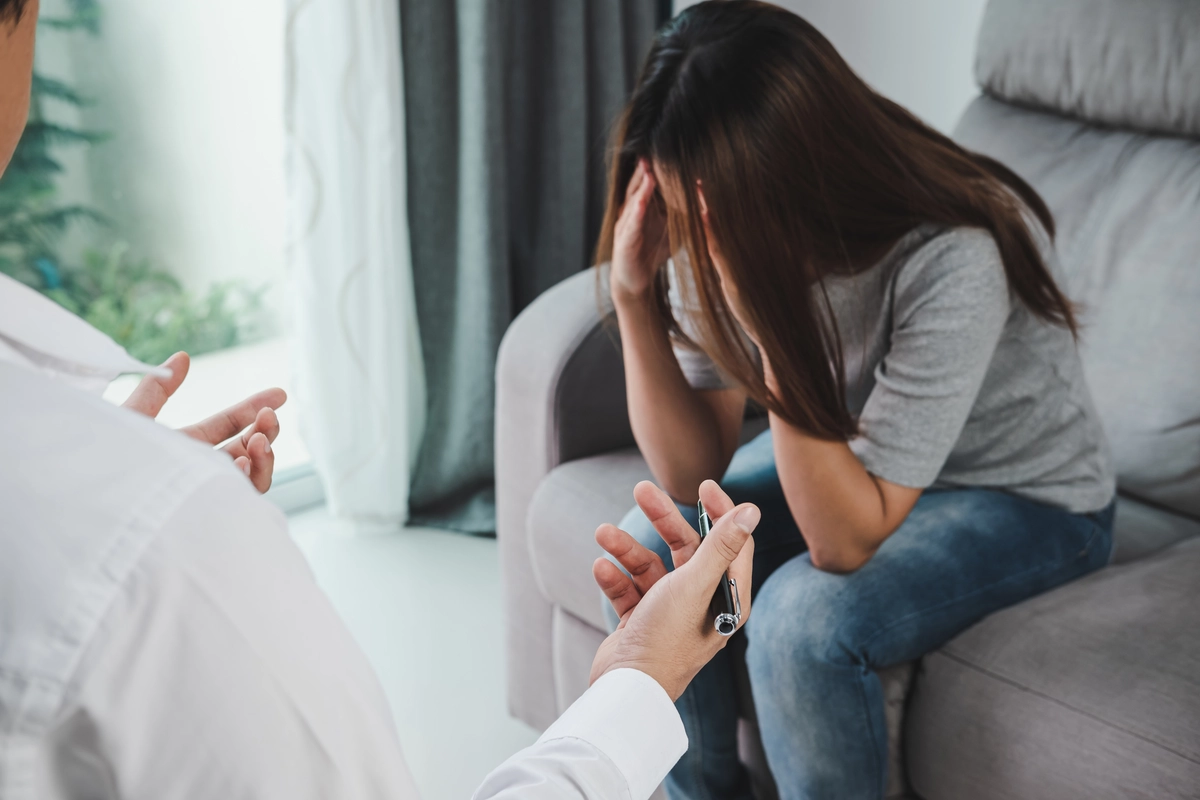24/7 Helpline:
(866) 899-221924/7 Helpline:
(866) 899-2219
Learn more about Eating Disorder Treatment centers in Newport Beach
Eating Disorder Treatment in Other Cities

Other Insurance Options

UMR

WellCare Health Plans

Humana

Optum

Magellan

State Farm

Aetna

Holman Group

Carleon

Sliding scale payment assistance

Kaiser Permanente

Highmark

Horizon Healthcare Service

ComPsych

Sutter
Beacon

Regence

Medical Mutual of Ohio

Molina Healthcare

CareSource

Miramar Recovery Center – Newport Beach Rehab
Miramar Recovery Center – Newport Beach Rehab is a private rehab located in Newport Beach, Californi...

Monte Nido
Monte Nido is an eating disorder center at Newport Beach that serves as a stand-alone facility for m...

Beachside Recovery
Beachside Recovery is a private rehab located in Newport Beach, California. Beachside Recovery speci...

Ocean Recovery – 1115 West Balboa Blvd.
Ocean Recovery is a drug and alcohol treatment center that supports women struggling with addiction....

Nsight Psychology & Addiction
The Nsight Psychology & Addiction Partial Hospitalization (PHP) and Intensive Outpatient Treatment P...

Pro – Found Private Treatment
Pro – Found Private Treatment is a private rehab located in Newport Beach, California. Pro – Found P...

The Landing
The Landing is a luxury, 12 step-focused drug and alcohol rehab for adult men in Newport Beach, Cali...

Alternative Sentencing Program
Alternative Sentencing Program is a private rehab located in Newport Beach, California. Alternative ...

Ocean Recovery – West Balboa Boulevard
Ocean Recovery - West Balboa Boulevard offers inpatient treatment for women with alcohol and/or subs...

Sober Partners Network
Sober Partners Network provides drug and alcohol treatment, interventions, sober companions and coac...

Hoag Addiction Treatment Centers
Hoag Addiction Treatment Centers provides superior alcohol and drug detox and rehab programs with a ...

Hotel California by the Sea
Hotel California by the Sea, in Newport Beach, California, is a luxury drug and alcohol rehab for ad...

Simple Recovery
Simple Recovery offers outpatient services for individuals with alcohol and/or substance addiction. ...

Akua Mind & Body
AKUA Mind & Body is a clinically based treatment center in California directed towards the managemen...

Balboa Horizons Treatment Services
Balboa Horizons Treatment Services offers outpatient and inpatient services for individuals with men...

Adelante Recovery
Adelante Recovery is a private rehab located in Corona del Mar, California. Adelante Recovery specia...

Casa Capri Recovery
Casa Capri Recovery for women is a passionate group of women who have come together for one purpose...

True Recovery
True Recovery has a state-of-the-art center with fully licensed staff. They offer "Real Yoga Classes...

Sierra by the Sea
Sierra by the Sea is a public rehab located in Newport Beach, California. Sierra by the Sea offers p...

The Mental Health Collective
The Mental Health Collective is a private rehab located in Newport Beach, California. The Mental Hea...

First Responder Wellness
First Responder Wellness is a private rehab located in Newport Beach, California. First Responder We...










































Healing Path Recovery
Healing Path Recovery is a drug and alcohol treatment center in Newport Beach, California that helps...

The Rose
The Rose provides residential treatment for individuals with alcohol and/or substance addiction. The...

National Treatment Centers
National Treatment Centers is a private rehab located in Newport Beach, California. National Treatme...

Seaview Drug Rehab Centers of Newport Beach
Seaview Drug Rehab Centers of Newport Beach is a private rehab located in Newport Beach, California....

Northbound Treatment Services
Northbound Treatment Services is a nationally recognized, private and exclusive drug rehab and alcoh...

Newport Coast Recovery
Newport Coast Recovery is a private rehab located in Newport Beach, California. Newport Coast Recove...

Pacific Shores Sober Living Homes
Pacific Shores Sober Living Homes offers sober living services for individuals recovering from alcoh...

Coastal Family Therapy Services
Coastal Family Therapy Services is a non-profit rehab located in Newport Beach, California. Coastal ...

Newport Coast Drug Treatment
Newport Coast Drug Treatment is a private rehab located in Newport Coast, CA. Newport Coast Drug Tre...

Chapman House
Chapman House is a private rehab located in Newport Beach, California. Chapman House specializes in ...

Newport Beach Stephouse Recovery
Newport Beach Stephouse Recovery is a private rehab located in Newport Beach, California. Newport Be...

Center for Discovery Newport Beach
Center for Discovery Newport Beach is a private rehab located in Newport Beach, California. Center f...

Newport Beach Recovery Center
In a safe and welcoming environment, our compassionate staff is invested in the success of each clie...







